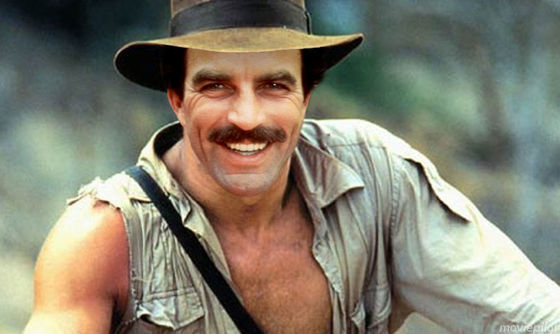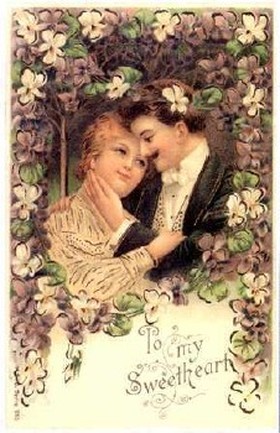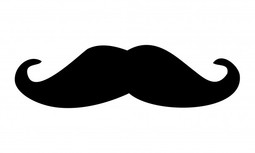Music Hall
This song began, so the story goes, in Buffalo, New York (like Buffalo Wings). The song was set as a chorus of male vocalists /dancers with female dancers or, at least a "TA-DA" chorus. The name Buffalo would be changed to match the specific city in which the performance was held (Dallas Gals will you come out tonight, etc.). The number of musicians frequently ranged from 3 to 16, depending on the size of the music hall or saloon. The lyrics here are the oldest I have found. Nearly every recording varies the stanzas and the lyrics to some extent. Since the 1930's a final stanza is frequently added that the narrator wants the girl he dances with to become his wife. No such stanza existed before 1881.
Minstrel Shows are, by some accounts, counted as a type of Music Hall. However, Minstrel Shows were not commonly a part of a play-bill but were specific, complete performances based loosely around a theme, such as picnic or Sunday dinner.
Minstrel Shows are, by some accounts, counted as a type of Music Hall. However, Minstrel Shows were not commonly a part of a play-bill but were specific, complete performances based loosely around a theme, such as picnic or Sunday dinner.
BUFFALO GALS
Attributed to John Hodgins (1844)
Attributed to John Hodgins (1844)
|
Buffalo Gals, won't you come out tonight,
Come out tonight, come out tonight. Buffalo Gals, won't you come out tonight And dance by the light of the moon. As I was walking down the street, Down the street, down the street, A pretty little gal I chanced to meet, Oh, she was fair to see. Buffalo Gals, won't you come out tonight, Come out tonight, come out tonight. Buffalo Gals, won't you come out tonight And dance by the light of the moon. I stopped her and we had a talk, Had a talk, had a talk, Her feet took up the whole sidewalk And left no room for me. Buffalo Gals, won't you come out tonight, Come out tonight, come out tonight. Buffalo Gals, won't you come out tonight And dance by the light of the moon. |
I asked her if she'd have a dance,
Have a dance, have a dance, I thought that I might have a chance To shake a foot with her. Buffalo Gals, won't you come out tonight, Come out tonight, come out tonight. Buffalo Gals, won't you come out tonight And dance by the light of the moon. I danced with a gal with a hole in her stockin', * And her heel kept a-knockin', and her toes kept a-rockin' I danced with a gal with a hole in her stockin' And we danced by the light of the moon. Buffalo Gals, won't you come out tonight, Come out tonight, come out tonight. Buffalo Gals, won't you come out tonight And dance by the light of the moon. * a rather crude allusion that the woman mentioned was not a virgin or even chaste. The lines that follow also have implications beyond dance. A verse about marriage was added in the 20th century as heard here, but it was non-existent in the 18th century. Source: The American Songbook, 1881. |
Wait for the Wagon
Attributed to R. Bishop Buckley (1854)
Attributed to R. Bishop Buckley (1854)
"Wait for the Wagon" has an unknown origin. It has been published as early as 1854 but with several subtitles as "A Song of the South West" and "An Ethiopian Song." Even the city of publication is unclear, either New Orleans or Baltimore. Many sources attribute the song to one R. Bishop Buckley, an unknown composer / lyricist known as G.A.S, or one W. Loftin Hargrave. Regardless, the song became immensely popular throughout the country, enjoying several variations and at least one "reply" song. It was adapted to a variety of forms from Parlor Music to Minstrel. However, there is no doubt about its popularity as a Saloon Hall song particularly in the Western territories and states. The song enjoyed something of a revival when it was included in the Broadway musical The Unsinkable Molly Brown in 1960 and the still popular movie by the same name. Both presented the song in the Saloon Hall style of performance.
|
Will you come with me, my Phillis dear, to yon blue mountain free,
Where the blossoms smell the sweetest, come rove along with me. It's ev'ry Sunday morning, when I am by your side, We'll jump into the wagon, and all take a ride. CHORUS: Wait for the wagon, Wait for the wagon, Wait for the wagon and we'll all take a ride. Where the river runs like silver, and the birds they sing so sweet, I have a cabin, Phillis, and something good to eat; Come listen to my story, it will relieve my heart, So jump into the wagon, and off we will start. CHORUS Do you believe my Phillis, dear, old Mike with all his wealth, Can make you half as happy, as I with youth and health? We'll have a little farm, a horse a pig and cow, And you will mind the dairy, while I do guide the plow. CHORUS |
Your lips are red as poppies, your hair so slick and neat,
All braided up with dahlias, and hollyhocks so sweet; It's ev'ry Sunday morning, when I am by your side, We'll jump into the wagon, and all take a ride. CHORUS Together on life's journey, we'll travel till we stop, And if we have no trouble, we'll reach the happy top; Then come with me, sweet Phillis, my dear, my lovely bride, We'll jump into the wagon, and all take a ride. CHORUS Source: The American Songbook, 1881. |
If You Only Had a Moustache (1864)
Lyrics: George Cooper
Music: Stephen Collins Foster
Except for his Minstrel Show Tunes, Foster is not normally associated with Saloon Hall performances. One genius of Foster's music is its universal versatility. It moves from all genres: folk, rock, country western, classical, and jazz to list a few. Late in his life, he often teamed with lyricist George Cooper who also remained as close of a friend Foster had left. Cooper's verses had a sense of parody, satire, and farce. Although not particularly remembered fondly by biographers and musicologists, a number of Foster's later songs remain popular with musicians and audiences. "If You Only Had a Moustache" is one of these. The song plays a major element in the 2014 motion picture A Million Ways to Die in the West.
Lyrics: George Cooper
Music: Stephen Collins Foster
Except for his Minstrel Show Tunes, Foster is not normally associated with Saloon Hall performances. One genius of Foster's music is its universal versatility. It moves from all genres: folk, rock, country western, classical, and jazz to list a few. Late in his life, he often teamed with lyricist George Cooper who also remained as close of a friend Foster had left. Cooper's verses had a sense of parody, satire, and farce. Although not particularly remembered fondly by biographers and musicologists, a number of Foster's later songs remain popular with musicians and audiences. "If You Only Had a Moustache" is one of these. The song plays a major element in the 2014 motion picture A Million Ways to Die in the West.
|
Oh! all of you poor single men, Don’t ever give up in despair, For there’s always a chance while there’s life To capture the hearts of the fair, No matter what may be your age, You always may cut a fine dash, You will suit all the girls to a hair If you’ve only got a moustache, A moustache, a moustache, If you’ve only got a moustache. No matter for manners or style, No matter for birth or for fame, All these used to have something to do With young ladies changing their name, There’s no reason now to despond, Or go and do any thing rash, For you’ll do though you can’t raise a cent, If you’ll only raise a moustache! A moustache, a moustache, If you’ll only raise a moustache. Your head may be thick as a block, And empty as any foot-ball, Oh! your eyes may be green as the grass Your heart just as hard as a wall. Yet take the advice that I give, You’ll soon gain affection and cash, And will be all the rage with the girls, If you’ll only get a moustache, A moustache, a moustache, If you’ll only get a moustache. I once was in sorrow and tears Because I was jilted you know, So right down to the river I ran To quickly dispose of my woe, A good friend he gave me advice And timely prevented the splash, Now at home I’ve a wife and ten heirs, And all through a handsome moustache, A moustache, a moustache, And all through a handsome moustache. |



